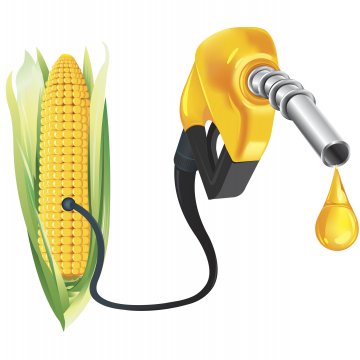
Friday afternoon, the Environmental Protection Agency (EPA) announced it had approved 31 of the 38 Small Refinery Exemtions (SRE’s). On it’s website, the EPA said Under EPA’s Renewable Fuel Standard (RFS) program, a small refinery may be granted a temporary exemption from its annual Renewable Volume Obligations (RVOs) if it can demonstrate that compliance with the RVOs would cause the refinery to suffer disproportionate economic hardship. EPA evaluates submissions to determine whether an exemption may be granted, based on information presented by the petitioning refinery and on the statutory and regulatory requirements for exemption.
EPA is proud to announce its intention to further explore opportunities to remove regulatory burdens that prevent marketplace entrance and growth to natural gas, flexible fuel vehicles, and E85 fuels. EPA welcomes the opportunity to engage with stakeholders to explore deregulatory options in the coming months to ensure that it plays its part in supporting American farmers and consumers.
Finally, EPA has also been in regular communication with the National Corn Growers Association and their state affiliates on the agency’s intent to expedite the reregistration of atrazine, a critical crop protection tool for corn. EPA is committed to an expeditious and transparent process to ensure that America’s corn growers have the tools they need to grow safe, healthy, and abundant food for all Americans and a growing global population.
Reaction from NCGA was immediate: NCGA President Lynn says since early 2018, EPA has undermined the Renewable Fuel Standard (RFS) and granted 53 RFS waivers to big oil companies, totaling 2.61 billion ethanol-equivalent gallons of renewable fuel. “Waivers reduce demand for ethanol, lower the value of our crop and undermine the President’s support for America’s farmers. Waivers benefit big oil at the expense of corn farmers who, between losing export markets abroad and ethanol markets at home, are losing patience.
|
|
The National Biodiesel Board (NBB) condemned the Environmental Protection Agency’s granting of 31 retroactive small refinery exemptions for 2018 as a fundamental failure to uphold the Renewable Fuel Standard (RFS).
“Less than two months after vowing to always protect and defend American farmers, President Trump is bowing to oil industry pressure and allowing his EPA to dismantle the Renewable Fuel Standard program, force U.S. biodiesel producers out of business, and undermine the farm economy,” stated Kurt Kovarik, NBB’s Vice President of Federal Affairs. “EPA and administration personnel are well aware that the ongoing spree of big oil exemptions destroy demand for biodiesel and render the RFS program meaningless.”
According to University of Illinois economist Scott Irwin, virtually all of the demand destruction from small refinery waivers is falling on the biodiesel industry. As EPA continues to hand them out to every refiner that asks, the damage to the U.S. biodiesel and renewable diesel industry could reach $7.7 billion or 2.54 billion gallons, according to Irwin.